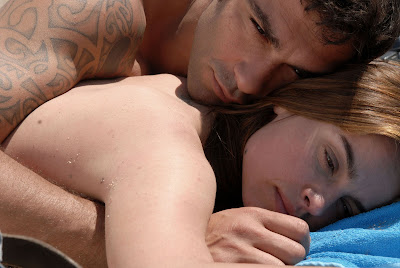"Cinema is about the gaze, about where someone is looking. I love to make movies where a character is thinking the line but not speaking the line.”
One of Italy’s most prolific and visionary filmmakers, Ferzan Ozpetek, draws inspiration from situations in everyday life and adds his unique point-of-view to turn the ordinary into the extraordinary.
Born in Turkey in 1959, Ozpetek moved to Rome two decades later to work in theater and assist various film directors. In 1997, he made his directorial debut with the critically acclaimed Hamam Turkish Bath, which went on to win two Golden Globes for Best New Director and Best Soundtrack. Since then, Ozpetek has directed some of the most beautiful and profound films of contemporary Italian cinema. He calls upon his own life experiences when deciding on a film project. He then builds upon that experience with his writing partner and close friend of more than 30 years, Gianni Romoli. Together, they transform an idea into a masterpiece with the perfect combination of drama and comedy relief.
In an Ozpetek film, there is so much that remains unsaid but is revealed through the characters' eyes. "During the shooting of La Finestra di Fronte (Facing Windows), I told Giovanna Mezzogiorno several times, ‘Don't speak the line. Just think the line and gaze,’" recalled Ozpetek. Fifteen years later, the pair teamed up again for Napoli Velata (Naples in Veils), the story of a woman overwhelmed by sudden love and loss. Ozpetek created a crypic world of light and shadows showcased by cinematography that will endear you to its spell-binding natural set. Clearly infatuated with the city of Naples, Ozpetek’s eye for its streets, architecture and shore renders it one of the protagonists. Combined with the explosive dramatic performances of the film’s stars, Mezzogiorno and Alessandro Borghi, the film is a feast for the eyes and soul. And speaking of feasts, food is always a part of his films, and Naples in Veils is no different. Eccentric family and friends sitting around impeccably-made tables eating decadent food is a welcomed reoccurrence in any number of his films.
Known to provoke emotionally-charged performances, another recent example is the 2014 Allacciate le cinture (Fasten Your Seatbelts). Starring the stunningly gorgeous Kasia Smutniak and Francesco Arca as Elena and Antonio, your quintessential archetype of opposites that attract, the two could not be any different and never mind that Antonio is engaged to Elena's best friend. Once again, Ozpetek manages to evoke extreme emotions such as bliss, fear, anger and guilt while capturing the rich backdrops and continuous playbook of life happening in the background. He brings contemporary issues into classic scenarios.
Rewind to 2007 and his ensemble hit Saturno Contro (Saturn in Opposition). The film follows a group of contemporary 30- and 40- somethings as they struggle to come to grips with youthful dreams that didn't come true. Ambra Angiolini plays the role of Roberta, a girl-next-door type whose unyielding support, light-heartedness and loyalty endears her character to the audience. It is a subtle but memorable performance that gives testament to Ozpetek’s delicate way of motivating his actors to give life to his screenplay.
I talked with him while he was in New York last year presenting Naples in Veils at Lincoln Center’s Open Roads: New Italian Cinema. I asked him to give insight into this affinity he has with his cast. “I choose my actors without auditioning them. I choose them from instinct. Instinctively, I say this person can be perfect for the part and that’s it. Then I fall in love with them, but not in the sense of real love or in a sexual way. But in a way that I want the best for them, I want them to do well.” He went on to say, “My rapport with the actors is the best part of my cinema.”
Watch a clip from our interview..
Having been born into one culture and living in another, Ferzan Ozpetek combines the best of both worlds in terms of culture, traditions and relationships. People are people wherever you go. We have the same problems, concerns, fears and desires. Ozpetek’s films mirror life and the struggles people go through. He appreciates physical beauty but also the beauty and purity of an honest, vulnerable soul. His films are visual art and his actors are lucky to be in his hands.
Naples in Veils is still being shown at film festivals throughout the world. Hamam Turkish Bath, Facing Windows, Fasten Your Seatbelts Saturn in Opposition and Loose Cannons are available through Amazon. Click on the links below to purchase or stream.




Comments
Post a Comment